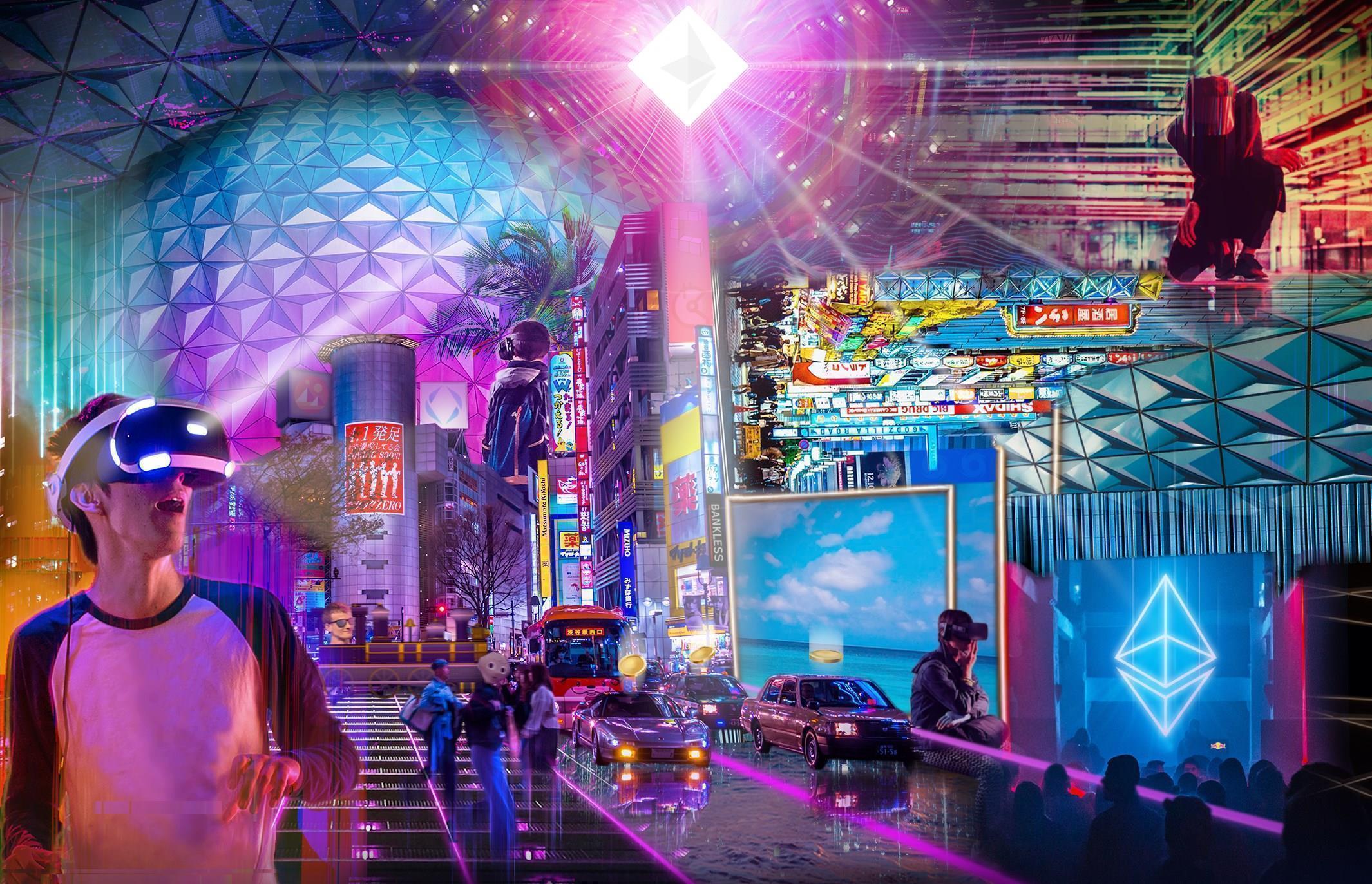The “metaverse”—a term used to refer to the vast, interconnected virtual worlds that are beginning to emerge—could be the next trillion-dollar opportunity for tech companies. The majority of the companies are investing in the development of highly immersive virtual spaces that will allow consumers to earn, spend their money, and invest in products and services.
Metaverse proponents are optimistic about the potential of fully-formed online worlds. However, there is a long way to go before these worlds become a reality as platforms like Second Life, Roblox, and Decentraland are not yet fully formed environments that people would want to live in. Younger generations including Gen Z and Gen alpha are likely to embrace metaverse-style platforms because they value their online identities more than older generations do.
The development of the metaverse is uncertain. If technical hurdles prove too difficult to overcome, or if consumers are unwilling to invest in digital-only goods and experiences, excitement about the metaverse may fade. However, it might take off and become a $1 trillion market opportunity by the end of this decade, therefore, businesses should pay attention as this could be a huge opportunity for companies whose products and services rely on engagement with others through digital means.
In this article, we explore the implications and disruption potential of the metaverse across five industries.
Fashion
The fashion industry is expected to generate $1.5 trillion in revenue, giving it the capital to experiment with virtual worlds. Beyond providing a new market to expand into, the big prize from building an early presence in the metaverse—be it virtual fashion shows or selling digital hats as NFTs—is that it could help luxury brands connect with the future big spenders in Gen Z and Gen Alpha.
Consumers already value many fashion items less for their function and more for how they make them feel and what they convey about their lifestyle — be it status or community, for example. This translates directly to virtual worlds and allows fashion brands to benefit from them.
The metaverse could provide an ideal testing ground for brands to experiment with new products and determine demand and receptiveness from consumers inhabiting virtual worlds. With virtual offerings, companies would benefit from avoiding manufacturing costs, saving time on bringing something to the market, and making adjustments based on designs that do well in the metaverse. Virtual fashion and beauty trends might become so influential that even brands without a metaverse presence may find themselves incorporating some of these trends into their collections.
Virtual worlds will allow new fashions to emerge without the constraints of real life, allowing companies to offer customers more fashion options than they could in the real world. Startups like DressX, which sells high-resolution virtual clothing items that can be overlaid onto videos and pictures taken by customers, hint at what might come in the metaverse.
Brands may also create digital replicas of real-life items, so when a customer purchases an item in the real world, they also own it in the metaverse. For example, South Korea-based 3D and XR company Vrism has worked with companies such as Adidas and Fila to create digital twins.
Efforts have already been made by some brands to establish a virtual fashion industry.
- Last year, luxury brand Gucci sold its first non-fungible token (NFT), launched virtual sneakers, and teamed up with Metaverse platform Roblox to create a virtual Gucci Garden that attracted 19 million visitors.
- Footwear giant Nike also announced in December that it had acquired RTFKT, a virtual sneaker company that sells products as non-fungible tokens (NFTs).
- In an effort to capitalise on the public’s interest in virtual reality, Adidas recently launched a new NFT collection dubbed “Into the Metaverse.” As a perk, customers who purchase these NFTs will receive access to an exclusive club where they can buy limited edition physical and virtual items.
- Balenciaga has partnered with video game developer Epic Games to launch a virtual clothing collection available in the game Fortnite. Featuring outfits, accessories, and a virtual Balenciaga store, the collaboration was accompanied by a real-world Balenciaga x Fortnite collection.
Retail
In 2021, the retail market in the US alone was worth $6.6 trillion, while e-commerce made up roughly 20% of global retail sales. If the metaverse gains mainstream traction then opportunities will abound to expand e-commerce into virtual markets offering digital-only products that avoid fickle supply chains and the risks of holding onto expensive inventory.
The metaverse could also be used to sell real-world, physical items. With advances in virtualisation and haptics technology, customers in the metaverse could browse items in virtual stores that very closely represent the real-world size, shape, and even texture of a product — allowing online shoppers to see these types of details without having to rely on just a handful of photos. This would result in increased sales and reduce the number of returns a company has to deal with.
The metaverse could also disrupt the retail industry by opening doors to more experimentation. Shoppers can already pay for goods on e-commerce sites using crypto, but Shopverse, a platform that allows owners of NFTs from its Shopverse collection to rent virtual storefronts in Sandbox and Decentraland, is currently building a metaverse shopping mall where owners of NFTs will be able to rent virtual storefronts in their respective VR platforms. Similarly, decentralised commerce company Boson Protocol has launched a metaverse mall called Boson Portal in Decentraland. Users of the portal can explore digital items and then redeem them for items in the real world.
Sports
To engage with fans, the sports industry has also begun exploring virtual options. For example, the 2022 Australian Open partnered with Decentraland and Tennis Australia to create a replica of the tournament’s grounds and create challenges for fans to participate in.
Metaverse technologies have the potential to transform sports, enabling athletes to compete in entirely new ways. The possibilities include an untethered version of surfing, which would allow surfers to ride waves without having to contend with the laws of physics. Virtuix, a virtual reality company, has developed an omnidirectional treadmill and harness that allows users to run, jump, and move without the risk of injuring themselves or others. Similar products could one day help power virtual sports in the metaverse.
Advertising
The metaverse could be used as an advertising platform, providing marketers with new channels to directly engage consumers. The metaverse also provides a foundation for gathering unprecedented amounts of behavioural data and the means to use it to subtly target ads in ways that many users wouldn’t even realise were marketing campaigns.
According to Collabstr, the influencer marketing industry is worth $15 billion by the end of 2022. Human influencers face competition from purely digital ones, as some companies have turned to new ways to reach their audience. Prada created a virtual influencer named Candy to promote Prada’s new perfume.
Advertising could become an organic part of virtual worlds, allowing brands to target their customers without disrupting the user experience. For example, rather than bombarding users with advertising banners, clothing companies could hire virtual influencers to wear outfits from brands a user has shown an interest in.
Entertainment and Business Conferences
Virtual concerts allow entertainers to reach new audiences while generating revenue on proto-metaverse platforms. Roblox, Fortnite, and Minecraft have hosted some of the most popular virtual concerts to date. In 2021, the band Twenty One Pilots teamed up with Roblox to create a virtual experience featuring their music. Fans could vote to select the next song on the setlist and purchase exclusive virtual accessories.
The metaverse has also allowed digital-only entertainers to take the stage. Virtual band Pentakill features League of Legends game characters performing a concert inside the game. Wave, a virtual entertainment startup, that has organised similar events for artists like John Legend, hosted the event.
Today, companies are organising conferences in entirely virtual as well as hybrid environments, laying the foundation for metaverse conferences in shared digital environments. Mytaverse is one company currently enabling virtual conferences and tradeshows.




